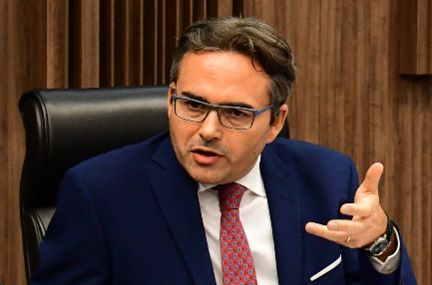Studying at the University of Verona
Here you can find information on the organisational aspects of the Programme, lecture timetables, learning activities and useful contact details for your time at the University, from enrolment to graduation.
Academic calendar
The academic calendar shows the deadlines and scheduled events that are relevant to students, teaching and technical-administrative staff of the University. Public holidays and University closures are also indicated. The academic year normally begins on 1 October each year and ends on 30 September of the following year.
Course calendar
The Academic Calendar sets out the degree programme lecture and exam timetables, as well as the relevant university closure dates..
| Period | From | To |
|---|---|---|
| primo semestre | Sep 14, 2015 | Jan 8, 2016 |
| secondo semestre triennali | Feb 15, 2016 | Jun 1, 2016 |
| secondo semestre | Feb 18, 2016 | May 28, 2016 |
| Session | From | To |
|---|---|---|
| appelli sessione invernale | Jan 11, 2016 | Feb 13, 2016 |
| prove intermedie secondo semestre | Apr 11, 2016 | Apr 15, 2016 |
| appelli sessione estiva | Jun 6, 2016 | Jul 9, 2016 |
| prove intermedie primo semestre | Nov 2, 2016 | Nov 6, 2016 |
| Session | From | To |
|---|---|---|
| sessione autunnale | Dec 11, 2015 | Dec 18, 2015 |
| sessione invernale | Apr 6, 2016 | Apr 8, 2016 |
| sessione estiva | Sep 13, 2016 | Sep 14, 2016 |
| Period | From | To |
|---|---|---|
| vacanze natalizie | Dec 23, 2015 | Jan 5, 2016 |
| vacanze pasquali | Mar 25, 2016 | Mar 29, 2016 |
| vacanze estive | Aug 8, 2016 | Aug 27, 2016 |
Exam calendar
Exam dates and rounds are managed by the relevant Economics Teaching and Student Services Unit.
To view all the exam sessions available, please use the Exam dashboard on ESSE3.
If you forgot your login details or have problems logging in, please contact the relevant IT HelpDesk, or check the login details recovery web page.
Should you have any doubts or questions, please check the Enrollment FAQs
Academic staff
 doriano.benedetti@univr.it
doriano.benedetti@univr.it
Brentari Eugenio
 eugenio.brentari@univr.it
eugenio.brentari@univr.it
 giovanna.caramia@univr.it
giovanna.caramia@univr.it
 roberto.fini@univr.it
roberto.fini@univr.it
 tamara.fioroni@univr.it
tamara.fioroni@univr.it

Lionzo Andrea
 andrea.lionzo@univr.it
andrea.lionzo@univr.it
 francesca.rossignoli@univr.it
francesca.rossignoli@univr.it
 0444 393941 (Ufficio Vicenza) 0458028261 (Ufficio Verona)
0444 393941 (Ufficio Vicenza) 0458028261 (Ufficio Verona)
 giuseppe.trabucchi@univr.it
giuseppe.trabucchi@univr.it
Study Plan
The Study Plan includes all modules, teaching and learning activities that each student will need to undertake during their time at the University.
Please select your Study Plan based on your enrollment year.
1° Year
| Modules | Credits | TAF | SSD |
|---|
2° Year activated in the A.Y. 2016/2017
| Modules | Credits | TAF | SSD |
|---|
3° Year activated in the A.Y. 2017/2018
| Modules | Credits | TAF | SSD |
|---|
| Modules | Credits | TAF | SSD |
|---|
| Modules | Credits | TAF | SSD |
|---|
| Modules | Credits | TAF | SSD |
|---|
| Modules | Credits | TAF | SSD |
|---|
Legend | Type of training activity (TTA)
TAF (Type of Educational Activity) All courses and activities are classified into different types of educational activities, indicated by a letter.
Public finance (2016/2017)
Teaching code
4S00311
Academic staff
Coordinator
Credits
9
Also offered in courses:
- Public finance of the course Bachelor's degree in Business Administration (Vicenza)
Language
Italian
Scientific Disciplinary Sector (SSD)
SECS-P/03 - PUBLIC ECONOMICS
Period
secondo semestre triennali dal Feb 20, 2017 al Jun 1, 2017.
Learning outcomes
The course covers the main topics related to the motivation and the organization of the public sector intervention in modern economies. It mainly consists of three parts: 1. Motivation and organization of public sector intervention; 2. Main expenditure programmes; 3. Main taxation programmes: theory and implementation in modern economies.
Program
Part I:
-Market failures.
-Decentralization: theory and the implementation in Italy
Part II:
-Social security: pensions, health care, poverty and unemployment insurance
-Pension systems: the rationale for public intervention; characteristics of different pensions systems; pension reforms in Italy since the 1990s.
Part III:
-Alternative financing tools: taxes and debt;
-General principles of taxation: equity and efficiency considerations;
-What characterizes taxes: tax bases and tax rates;
-The economic impact of taxation
-The main characteristics of the Italian tax system: personal income tax, corporate taxation, taxation of returns on capital, indirect taxes, local taxes.
-Taxation in open economies.
Examination Methods
The exam is split into two parts:
- a preliminary multiple choice test (weight: 1/3)
- a written exam with exercises and theoretical questions (weight: 2/3)
Admission to the second part is conditioned on the achievement of a minimum score in the first part (14/30).
The exam may (optionally) be split into two parts: the first will be scheduled during the course, with questions of topics covered until that point; the second, scheduled for the same date date as the whole entire exam, with questions on the remaining part of the programme. The weight of the two parts in determining the final grade is the same.
Type D and Type F activities
Modules not yet included
Career prospects
Module/Programme news
News for students
There you will find information, resources and services useful during your time at the University (Student’s exam record, your study plan on ESSE3, Distance Learning courses, university email account, office forms, administrative procedures, etc.). You can log into MyUnivr with your GIA login details: only in this way will you be able to receive notification of all the notices from your teachers and your secretariat via email and also via the Univr app.
Graduation
List of thesis proposals
| theses proposals | Research area |
|---|---|
| Tesi di laurea - Il credit scoring | Statistics - Foundational and philosophical topics |























